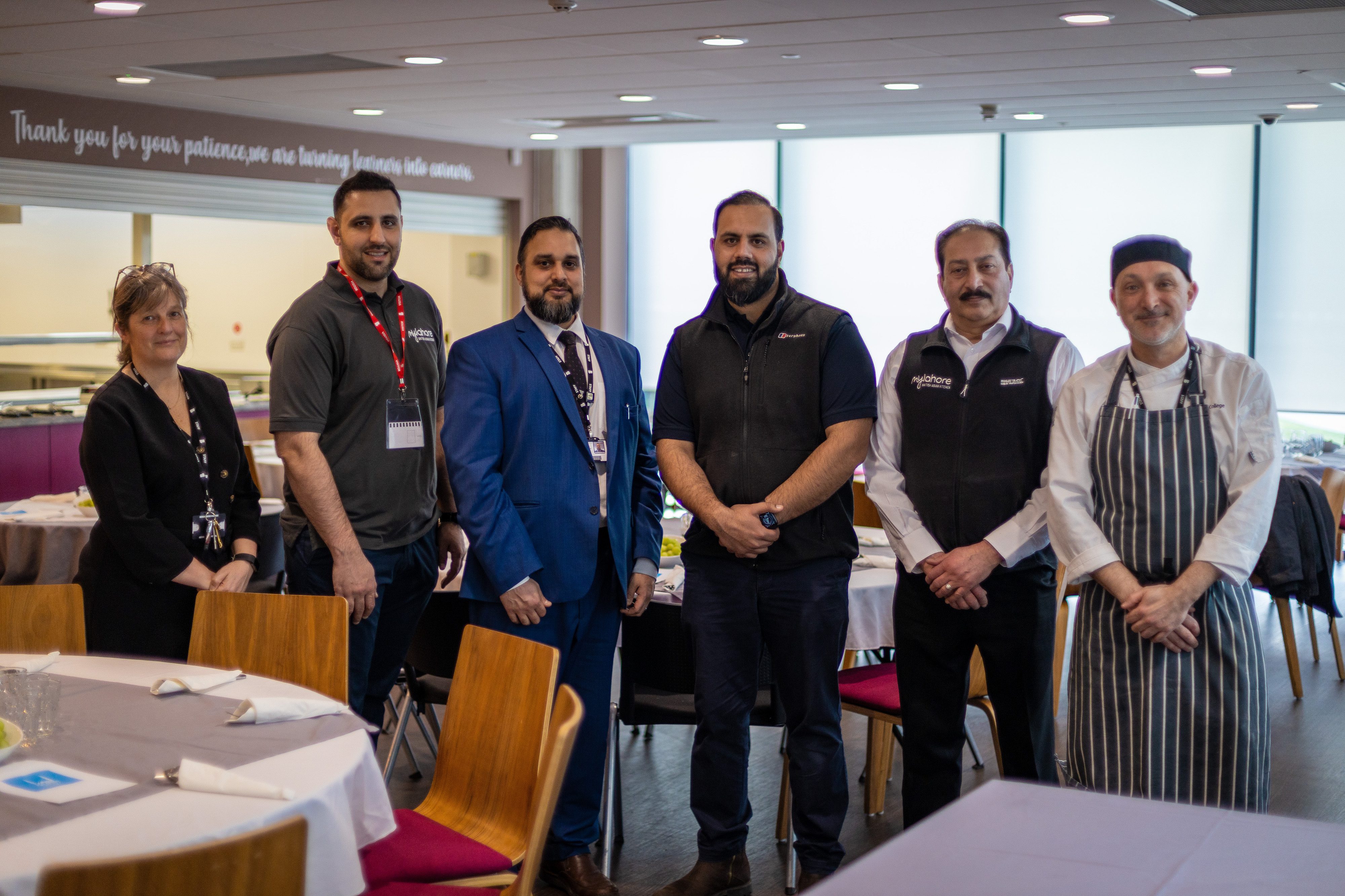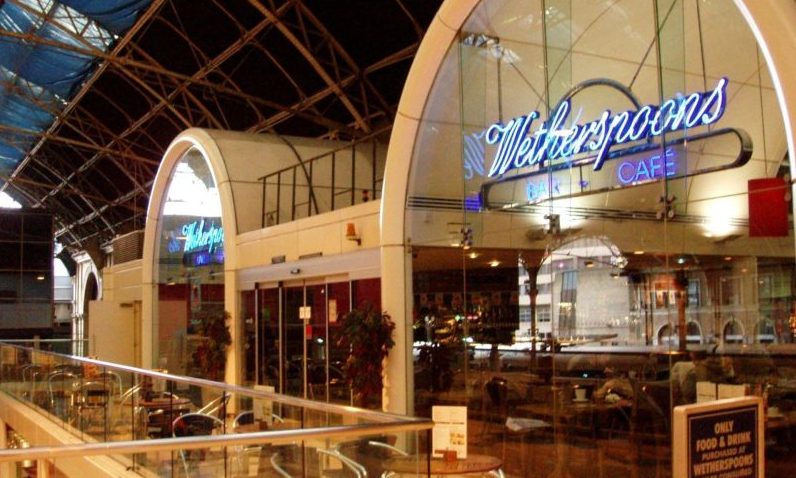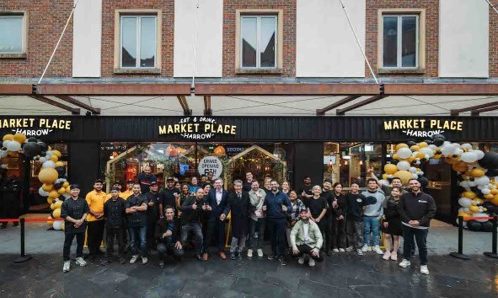Register to get 5 free articles
Reveal the article below by registering for our email newsletter.
Want unlimited access? View Plans
Already have an account? Sign in
Is there a recruitment crisis in hospitality at the moment?
In short, yes. But there has been one for many years, even for decades, there haven’t been enough staff in the catering industry in the UK. This is why Springboard was set up 33 years ago, and the crisis has certainly not gone away. And then came Brexit and Covid, which certainly didn’t make things better.
Do you think it has worsened in recent years?
Yes, and I think there’s always been some challenges around the perception of a career in hospitality. Teachers and parents haven’t perhaps valued careers in the industry as much and haven’t been recommending them. Part of the reasons why people might not be attracted to the industry is because you have to work long hours and you have to work hard, it’s tiring, you have to spend the whole day on your feet and it’s not something that anyone is willing to do.
Then with Brexit, there was a huge loss of European workers, who make up a huge proportion in the workforce. And lastly with Covid, hospitality was once again hit hard and confidence in the sector was knocked a bit.
Can you tell me a bit about what types of programmes Springboard proposes and how they differ from each other?
Broadly they all sit under the umbrella of our main purpose, which is to promote the industry as a great place to work. We attract people into it. We give people the skills to launch their careers, and we help them find a great job. And there’s sort of three main strands.
The first is employability training. We take unemployed people, often young and disadvantaged and those who are struggling to find work, we help give them the skills to get them ready for work. So we teach them soft skills like confidence, motivation and work mindset and then some hospitality specific skills, such as customer service, health and safety, bar skills and others. We also help them get their CV up to speed, do mock interviews and then we take them to visit some venues to hear about other people’s careers and to get them work experience as well. Through these programmes we trained about three and a half thousand people last year and we got about 73% of them into work within the industry.
What about the other types of programmes that Springboard offers?
The second strain is about the work we do in schools and colleges. There’s a flagship bit of activities, including the Future Chef cooking competition, which is for 14 to 16 year olds and it’s all around the UK. We had about 14,000 students engaged with it last year. Any school can take part and we’ll give them the framework to do it. They will have a competition within their school to find the best chef, then the winners from each school will take part in a local competition and then, the local winner will go through to the regional competition. Lastly the 12 regional winners will take part in the national final in London. The whole point is about getting them excited and engaged so that when they leave school, they’ll potentially consider a career in hospitality.
We also offer just general career advice. We have a platform called Career Scope, which acts as a sort of hospitality careers portal. We launched it with a collaboration with UKHospitality, Hospitality Action and others. It’s got everything you need to know, a lot of resources and about 110,000 people used it last year.
Are the training programmes available to anyone?
Yes, to anyone no matter the age as long as they’re unemployed. The courses are typically three weeks long, all free of charge obviously, and there’s a week’s work experience at the end. They don’t get paid, but they get their food and travel covered. The people accessing our programmes are usually those who have faced a few barriers and are struggling to find work on their own because of a variety of reasons, whether it’s a lack of experience or confidence or they may have some mental health challenges or even refugees.
How does Springboard partner with hospitality businesses to offer work experience as part of the training?
Everything from hotels and restaurants and pubs and bars that would like to partner with us, we promote their brands to our trainees and we get their staff involved with our mock interviews for example. And our partners are also more likely to recommend what local businesses are hiring, even after the work experience ends.
How do trainees get in contact with Springboard?
They’d normally be referred to us by another organisation. It could be the job centre, or it could be a local charity that they have been referred through or sometimes they’ve seen one address on social media and they would go to Career Scope, the platform I mentioned before. From there, they create a profile, carry out an assessment and if we find that they wouldn’t benefit from one of our courses, we might refer them to another organisation.
Despite the high number of vacancies within the industry, the Government in March decided not to put the hospitality sector into the shortage occupation list, which would make it easier for people to come from abroad and fill the vacancies. What’s Springboard’s opinion on this decision?
There’s clearly not enough staff at the moment in the UK to fill those vacancies and in the short term we need more people, so opening the border and letting people come from the European Union or from other countries would certainly help.
But longer term, there is an even bigger challenge around changing the perception of a career in the industry, getting more young people coming in, and making them understand what a fulfilling career you can have in hospitality.
What would you say to someone who wants to start working in the hospitality sector, but might be scared because of the economic situation?
I would tell them to go for it because it’s a very successful industry. Even if you look for example at the Coronation weekend that just passed, it’s going to give billions of pounds to the hospitality sector. A career within the industry also gives incredible personal growth by being part of a team, growing skills and then within a couple of years getting promoted and taking managerial positions or even starting your own company.


















